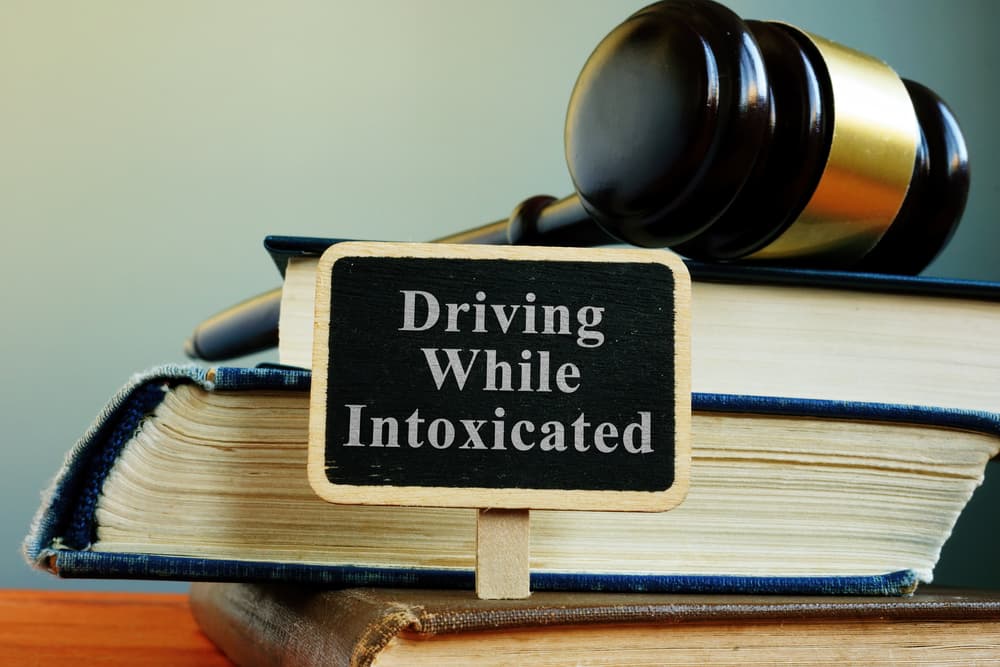Can You Go to Canada with a DWI?

If you’ve ever faced a DWI (Driving While Intoxicated) charge in California, you may have wondered how it could impact more than just your driving privileges.
One lesser-known but very real consequence is that a DWI conviction can prevent you from crossing into Canada, a country with some of the strictest entry laws regarding criminal records. Even a single DWI, viewed as a “serious offense” under Canadian immigration law, can result in being turned away at the border.
Fortunately, navigating these restrictions isn’t impossible with the right guidance. There are legal pathways, such as Temporary Resident Permits (TRPs) and Criminal Rehabilitation, that may allow you to visit Canada, even if you have a prior DWI on your record.
If you’re considering a trip north and have questions about your admissibility to Canada, don’t leave it up to chance. Call The Rodriguez Law Group today at (213) 995-6767—our team is ready to provide you with the clear, actionable legal guidance you need to move forward with confidence.
Understanding DWI Convictions in California
 In California, a DWI—often called a DUI (Driving Under the Influence)—is a serious offense with lasting legal consequences. California law, specifically under Vehicle Code §23152(a), prohibits driving under the influence of alcohol or drugs, while Vehicle Code §23152(b) sets a legal blood alcohol concentration (BAC) limit at 0.08% for most drivers. A conviction under these statutes results in immediate penalties and a criminal record that can follow you far beyond the state’s borders.
In California, a DWI—often called a DUI (Driving Under the Influence)—is a serious offense with lasting legal consequences. California law, specifically under Vehicle Code §23152(a), prohibits driving under the influence of alcohol or drugs, while Vehicle Code §23152(b) sets a legal blood alcohol concentration (BAC) limit at 0.08% for most drivers. A conviction under these statutes results in immediate penalties and a criminal record that can follow you far beyond the state’s borders.
What Counts as a DWI Under California Law?
A DWI charge can involve more than just drinking and driving; it encompasses driving under the influence of controlled substances or any substance that impairs your ability to drive safely. In California, DWI offenses fall into two primary categories:
- Standard DUI/DWI: Violations of VC §23152(a) or (b), involving alcohol or drugs.
- Aggravated DUI/DWI: Cases with aggravating factors, such as a high BAC level, repeat offenses, or incidents causing bodily harm.
These distinctions may affect how Canadian immigration officials evaluate the seriousness of your offense, especially since Canada also treats impaired driving as a significant offense under its own immigration rules.
Canada’s Immigration Laws Regarding Criminal Convictions
Unlike some countries that may overlook a single misdemeanor, Canada enforces its immigration policies with a zero-tolerance approach toward impaired driving offenses.
In fact, Canada amended its criminal laws in 2018 under Bill C-46, which increased the penalties for impaired driving and classified it as a major offense under the Canadian Criminal Code. This classification makes it equivalent to an indictable offense in Canada, which is comparable to a felony in the U.S.
Consequently, even a first-time DWI conviction in California can meet the threshold for “serious criminality” under Canadian law, making entry into Canada challenging without legal intervention.
Options for Entering Canada with a DWI
While a DWI conviction in California can complicate entry into Canada, there are specific legal options that may allow you to travel despite this restriction. Canada’s immigration policies offer three main pathways to overcome criminal inadmissibility: Temporary Resident Permits (TRP), Criminal Rehabilitation, and Deemed Rehabilitation. Each option has distinct requirements, so understanding them is important to deciding the best approach for your travel plans.
1. Temporary Resident Permit (TRP)
A Temporary Resident Permit (TRP) provides a short-term solution, allowing individuals with a DWI to enter Canada temporarily, despite their inadmissibility. TRPs are granted on a discretionary basis, typically when the applicant can demonstrate a compelling reason for travel, such as:
- Business travel
- Family gatherings or emergencies
- Tourism or other non-essential travel in certain cases
To apply for a TRP, you must show that your entry into Canada does not pose a risk to public safety. The Canadian government considers several factors, such as the nature of your DWI offense, the time elapsed since the conviction, and the reasons for your visit.
- Application Process: TRP applications can be submitted to the Canadian Consulate or at a port of entry (such as an airport). Applicants must provide detailed information about their criminal record, reasons for travel, and supporting documents.
- Duration of Permit: TRPs can be issued for a specific period (ranging from a few days to three years), depending on the applicant’s situation.
- Fees and Requirements: The TRP application fee is approximately CAD 200, though fees and requirements may vary.
While TRPs offer a viable temporary solution, they are not a permanent fix. Each TRP is issued only for the duration of the trip, so if you need to travel to Canada frequently, you may want to consider the next option.
2. Criminal Rehabilitation
Criminal Rehabilitation provides a more permanent solution, allowing you to enter Canada without needing additional permits for future visits. Unlike a TRP, which is temporary, Criminal Rehabilitation erases the conviction from your record in Canada’s eyes, provided you meet certain criteria.
- Eligibility: You may be eligible for Criminal Rehabilitation if it has been at least five years since you completed all sentencing requirements related to your DWI (e.g., fines, probation, license suspension).
- Application Process: The application involves a thorough review of your criminal record, personal history, and evidence of rehabilitation. Applicants must submit a formal application, pay a processing fee (typically CAD 200 or CAD 1,000, depending on the offense’s severity), and provide comprehensive documentation.
- Permanent Status: Once granted, Criminal Rehabilitation is permanent, meaning you will no longer be inadmissible to Canada for that specific offense.
Criminal Rehabilitation is often recommended for those who travel to Canada frequently or plan to live, work, or study there. However, the process can take several months, so make sure to plan ahead.
3. Deemed Rehabilitation
For individuals with older DWI convictions, Deemed Rehabilitation may be an option. This pathway applies automatically if enough time has passed since the conviction, making you eligible to enter Canada without any formal application.
- Eligibility: Deemed Rehabilitation generally applies if at least 10 years have passed since you completed your sentencing requirements, and you have no further criminal convictions. Canada may consider you rehabilitated “by the passage of time.”
- Automatic Process: No formal application is necessary for Deemed Rehabilitation, but border officials still have discretion to review your record and deny entry if they have concerns.
Choosing the Right Option
A TRP may be suitable for occasional trips, while Criminal Rehabilitation offers a permanent solution for frequent travelers. Deemed Rehabilitation, although convenient, may still require you to carry proof of completion of all sentencing conditions when traveling to Canada. Consult with our attorneys to figure out the best path forward for your unique circumstances.
Steps to Take Before Planning Travel to Canada
If you have a DWI on your record and are considering traveling to Canada, taking the right steps beforehand can help you avoid surprises at the border. Each of the legal pathways mentioned requires a different level of preparation, documentation, and timing.
1. Conduct a Personal Criminal Record Check
A personal criminal record check can provide an official summary of your conviction history, which will be necessary for any Canadian immigration applications. In California, you can obtain your record through the California Department of Justice (DOJ) or by requesting an FBI background check if you want a federal report. You’ll need this document for your application, whether you pursue a TRP, Criminal Rehabilitation, or prove eligibility for Deemed Rehabilitation.
2. Consult with our Attorneys
While you may understand the basic requirements, our knowledgeable attorneys will offer insights that streamline the application process and improve your chances of success. They will assess which option best fits your situation—whether you’re more suited for a TRP or eligible for Criminal Rehabilitation.
3. Gather Required Documentation
Here’s a quick list of what you might need:
- Personal Identification: A valid passport or government-issued ID.
- Detailed Criminal Record: Your complete criminal record, including court documents that detail your DWI conviction, sentencing, and proof of sentence completion.
- Proof of Rehabilitation (if applicable): Evidence that you have completed all penalties, such as alcohol education or treatment programs, fines, or probation.
- Letter of Explanation: For TRP applications, a written statement explaining why you’re seeking entry to Canada, your reasons for travel, and why you do not pose a risk to Canadian society.
4. Choose the Right Timing for Your Application
Timing is everything, especially for Criminal Rehabilitation applications, which can take several months or even up to a year for approval. If you need to travel urgently, a TRP may be a faster option, but you’ll need to prove that the purpose of your travel justifies an expedited process.
5. Prepare for the Canadian Border Entry Process
Even with the proper permits, it’s best to prepare for questions at the border. Canadian border agents have full discretion to assess admissibility and may ask about your criminal history or request supporting documents. Be ready to answer questions confidently and provide any documentation that may be requested to confirm your admissibility.
Potential Consequences of Attempting Entry Without Proper Clearance
Attempting to cross into Canada without addressing a DWI conviction can result in serious setbacks that may affect both your immediate travel plans and future visits.
1. Immediate Denial of Entry
One of the most immediate consequences is being denied entry at the border. Canadian Border Services Agency (CBSA) officers have the authority to refuse entry to anyone deemed inadmissible due to criminal convictions, including DWIs. Once flagged as inadmissible, it’s challenging to reverse this decision on the spot.
- What This Means: Being denied entry is not only inconvenient but also becomes part of your travel record, making future entries to Canada more difficult even if you later secure the necessary permits.
2. Potential Restrictions on Future Travel
An attempted entry without proper clearance can lead to added scrutiny in future border crossings. Even if you’re eventually deemed admissible, CBSA officers may review your history at each entry attempt, potentially causing delays or additional questioning.
- Long-Term Impact: Multiple attempted entries without a permit can establish a negative travel history, complicating future visits to Canada and potentially impacting entries into other countries with similar policies.
3. Fines or Penalties
In some cases, attempting to enter Canada without proper authorization may lead to fines or other penalties, particularly if border agents suspect any misrepresentation of facts or omissions in travel applications. Canadian authorities view attempts to bypass immigration rules as a serious offense.
4. Possible Legal Consequences
Depending on the circumstances, CBSA officers could report the incident, which may result in administrative penalties or require you to engage in formal legal processes before attempting entry again. Repeated attempts to enter Canada without addressing a DWI conviction could create a more extensive legal issue.
Want to Travel to Canada with a DWI?
We’re here to help. Our team will work with you to assess your options, guide you through the necessary applications, and ensure that your record is presented clearly and accurately.
Don’t risk a denial at the border—contact us today (213) 995-6767 to discuss how we can help secure your entry into Canada and make your travel plans a reality.


